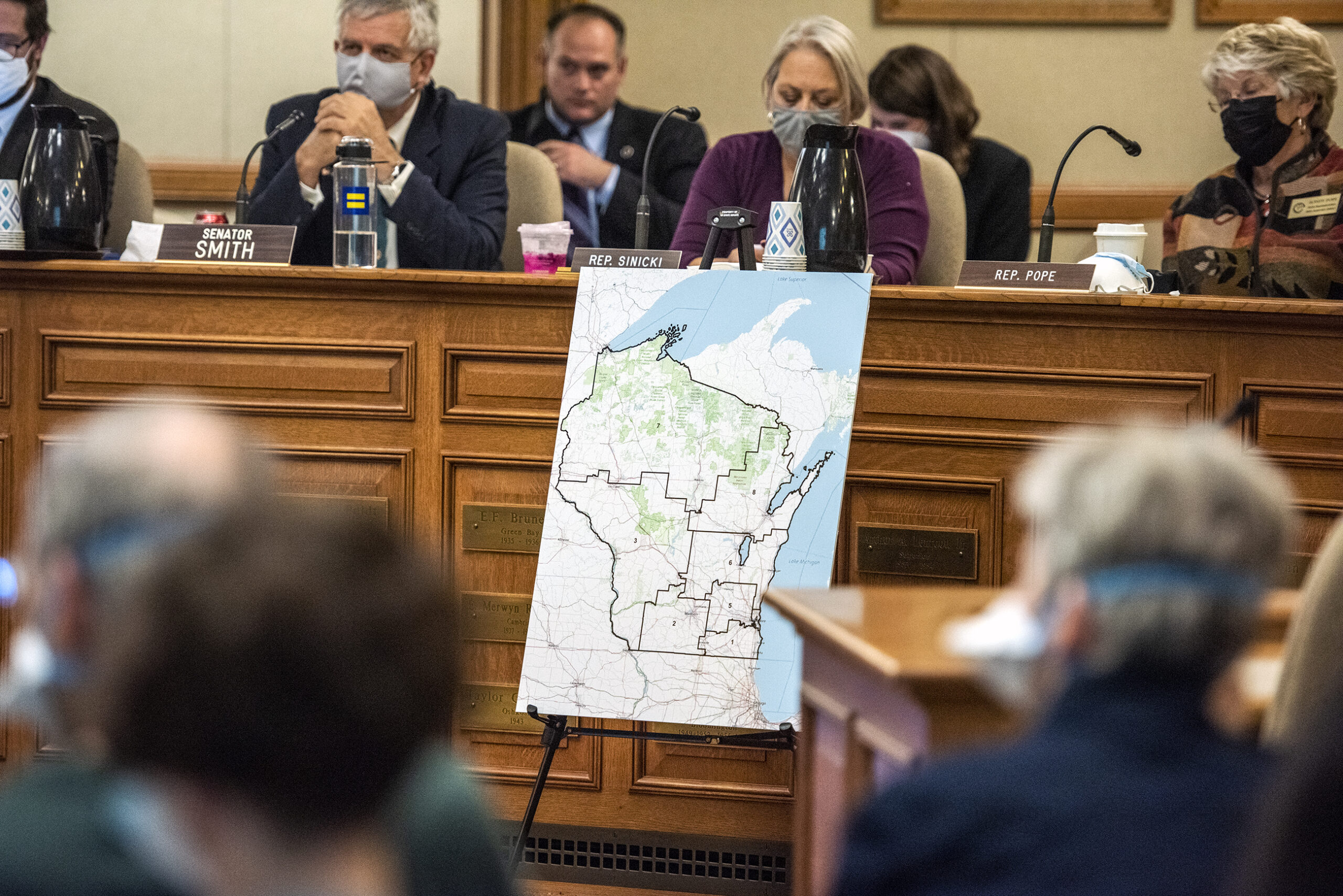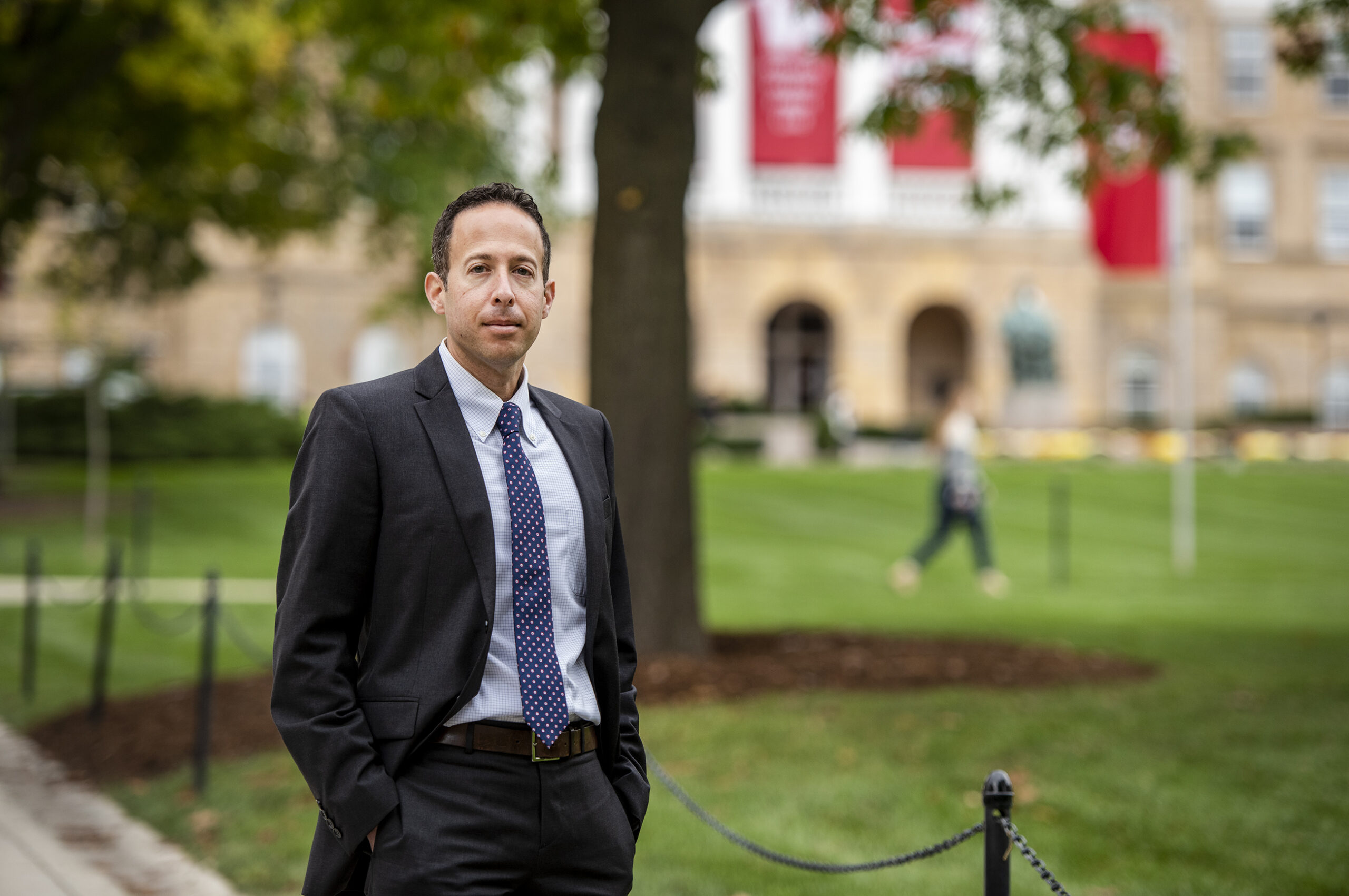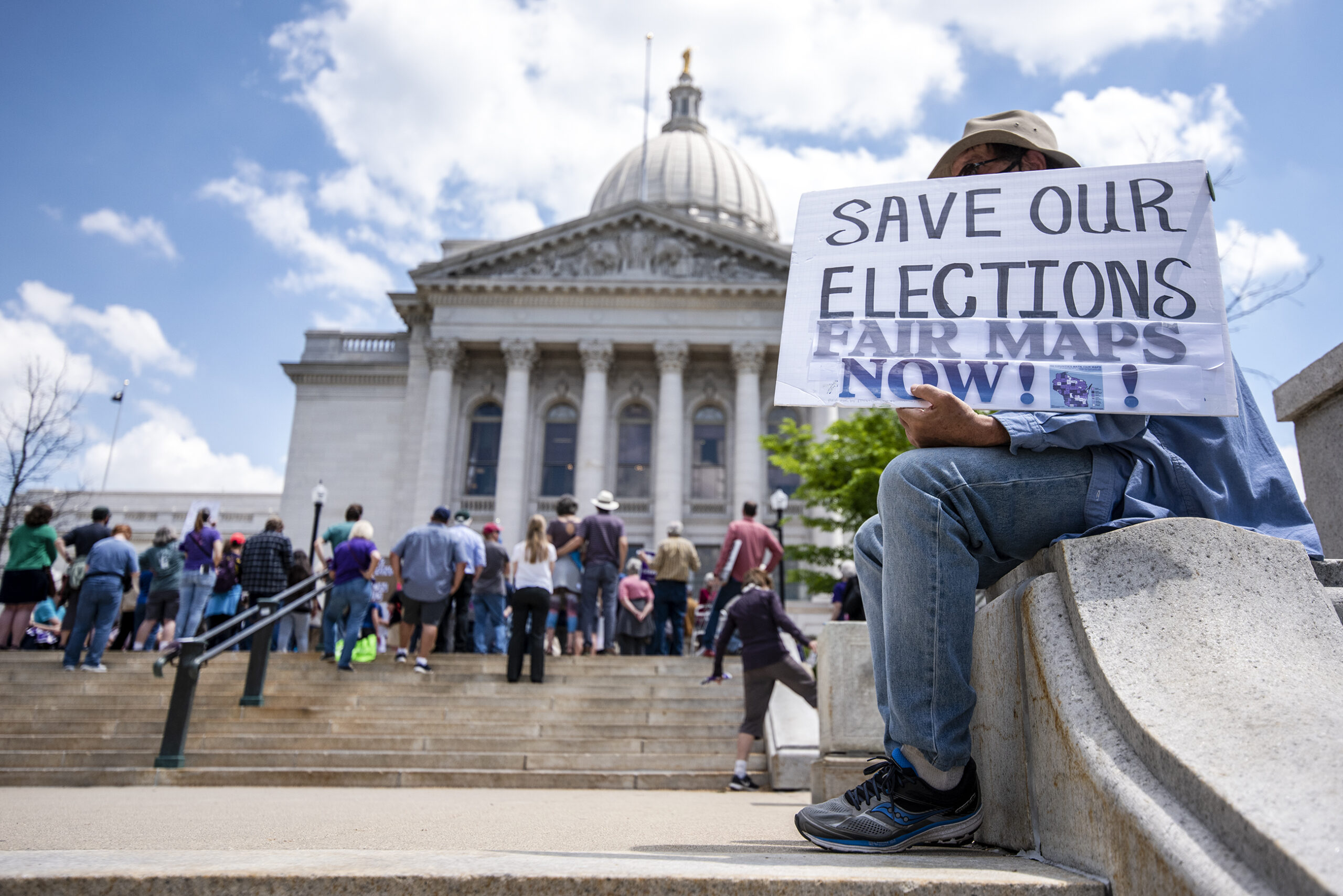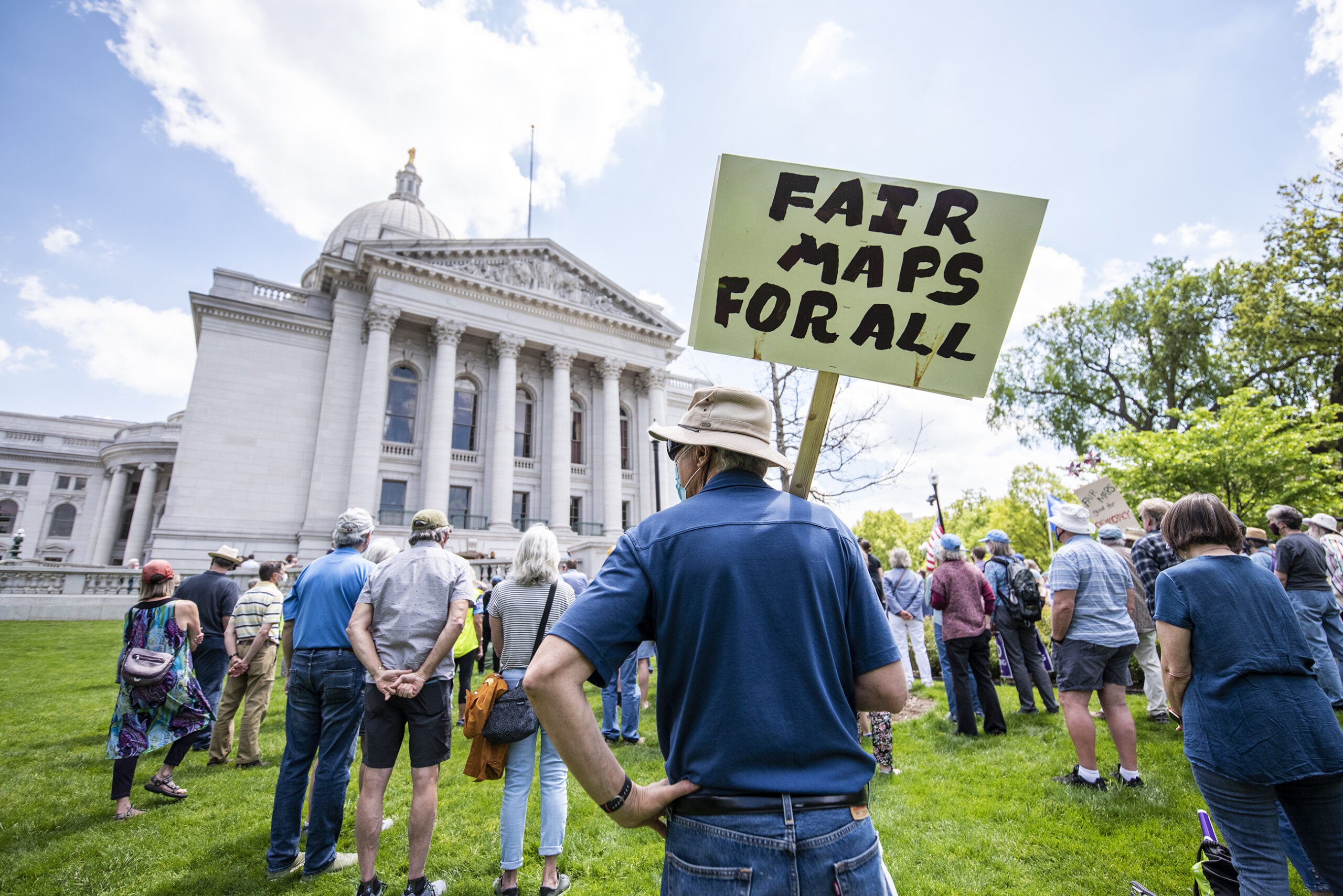On April 4, Wisconsin voters will choose a new justice to sit on the state’s highest court — but the race could eventually go a long way to deciding who sits in the Legislature.
The Wisconsin Supreme Court race has been called the most important election in the country this year, and the new court will be asked to weigh in on any number of pivotal issues, including, most prominently, whether to strike down the state’s abortion ban. But it could also consider a challenge to the state’s political district maps, which have been described as among the most gerrymandered in the country.
Whether the court takes that step almost surely depends on who wins next month’s election. A victory by former Justice Dan Kelly would preserve the 4-3 conservative majority. A win by Milwaukee County Judge Janet Protasiewicz would give liberals control of the court for the first time since 2008.
News with a little more humanity
WPR’s “Wisconsin Today” newsletter keeps you connected to the state you love without feeling overwhelmed. No paywall. No agenda. No corporate filter.
If the latter happens, it would open the door to a redistricting case, said Rob Yablon, a University of Wisconsin-Madison law professor and redistricting expert.
“The court likely would have that opportunity,” Yablon said. “I think there are litigants who would almost certainly try to bring a case.”

What the courts have said
Wisconsin is a quintessential “purple state,” split nearly 50-50 between Democrats and Republicans. In statewide elections, sometimes Republicans win and sometimes Democrats do.
For more than a decade, Republicans have held strong control of both houses of the state Legislature, thanks in part to the district lines they drew in 2011.
In 2015, Wisconsin Democrats thought they had the answer to this — a new standard to measure gerrymandering that would give federal courts the ability to rule when a redistricting plan was too partisan.
They took the idea all the way to the U.S. Supreme Court, but the day they made their arguments, it was obvious some justices had their doubts. Chief Justice John Roberts called their ideas “sociological gobbledygook.” The case was eventually remanded to a lower court, and in 2019, the Supreme Court slammed the door to the idea when it decided that partisan gerrymandering wasn’t justiciable at the federal level.
At the time, it seemed like a nail in the coffin for Democrats’ hopes to secure different district maps. Another round of redistricting came and went in 2021, and once again Wisconsin was left with maps that heavily favor Republicans in the Legislature.
But according to Yablon, one avenue remains: state courts, including the Wisconsin Supreme Court. In fact, the Supreme Court “explicitly left the door open” for state courts to consider partisan gerrymandering claims, he said.

And that’s why the maps are a huge issue in this year’s race for Wisconsin’s court race.
“I have little doubt that if the court’s composition changes, someone is going to try to pursue that case,” Yablon said.
The state’s current maps were drawn by Republican legislators in 2021, based on the maps Republicans drew 10 years before. In that time, the GOP has held strong control of both houses of the Legislature, even in years when Democrats did well in statewide elections. Different maps might change that power balance, Yablon said.
“There has not been meaningful competition for control of the Wisconsin Legislature,” Yablon said. Different maps “would at least raise the possibility that there would be a meaningful fight for legislative control.”
If Democrats were to gain control in the Legislature, it would open the door to any number of policy changes that they haven’t been able to pursue in recent history, like expanding Medicaid, legalizing marijuana and codifying abortion rights.
What the candidates are saying
With the political stakes high, Protasiewicz, the candidate supported by Democrats, has made clear how she feels about the current, Republican-drawn district lines.
“Let’s be clear here: the maps are rigged,” she said at a candidate forum in January. “Absolutely, positively rigged. They do not reflect the people in the state.”
Protasiewicz said the current Supreme Court made a mistake when it upheld the maps, and has said she would like to take a fresh look at them. But she says she’s not saying how she would rule on a redistricting case should it come before the court.
“I can’t ever tell you what I’m going to do on a particular case,” Protasiewicz said. “But I can tell you my values.”
At the same forum, Kelly, the candidate backed by Republicans, took issue with that assertion.
“I think when someone tells you what their values are in answer to a legal question, they’re telling you how they’re going to decide a case,” Kelly said.
Kelly defended the rationale behind the court’s decision to uphold the maps last year and said personal values should not play a role when it comes to considering redistricting.
“When a map comes to the court, with a challenge that it is unlawful in some regard,” he said, “the court’s responsibility is limited to considering the legal challenges, not the political challenges.”

What attorneys are saying
Jeff Mandell, board president of the liberal group Law Forward and attorney at Stafford Rosenbaum in Madison, believes there are several areas of the state constitution that could be grounds for a challenge.
“There is no hard and fast plan,” he said. “There is no complaint or document that is written. But there are plenty of conversations going on about what such a lawsuit would look like.”
A challenge could be based on the state constitution’s redistricting provisions, he said, but also on other areas related to voting.
“You could also imagine claims that maybe it violates that right to vote,” he said. “Is the right to vote merely the right to stand on a line on Election Day and cast a ballot? Or is it a right to cast a meaningful ballot?”
Rick Esenberg, president of the conservative Wisconsin Institute for Law and Liberty, says that even if a map challenge were to be brought before the state Supreme Court, he doubts a violation of the Wisconsin Constitution could be proven.
“The problem is that there really isn’t anything in the Wisconsin Constitution, other than a requirement that the maps be contiguous and compact,” he said. “And the thing about the maps in Wisconsin is that they are contiguous and compact.”
Mandell said it’s important to note that new maps wouldn’t guarantee Democratic control in a state that’s split 50-50.
“I’m not telling you which party is going to control the Assembly or which party is going to control the Senate, that very well might not change,” he said. “What it would mean is that we’d have a legislature that is responsive to what the people want.”
If the court flips, Mandell said a challenge to the maps would likely be filed quickly. The new justice will be seated on Aug. 1.
For more on the history of redistricting in Wisconsin and how it impacts political power in the state, check out WPR’s investigative podcast series, “Mapped Out.”
Editor’s note: This story has been updated to reflect Jeff Mandell is board president of Law Forward and an attorney at Stafford Rosenbaum in Madison.
Wisconsin Public Radio, © Copyright 2025, Board of Regents of the University of Wisconsin System and Wisconsin Educational Communications Board.





